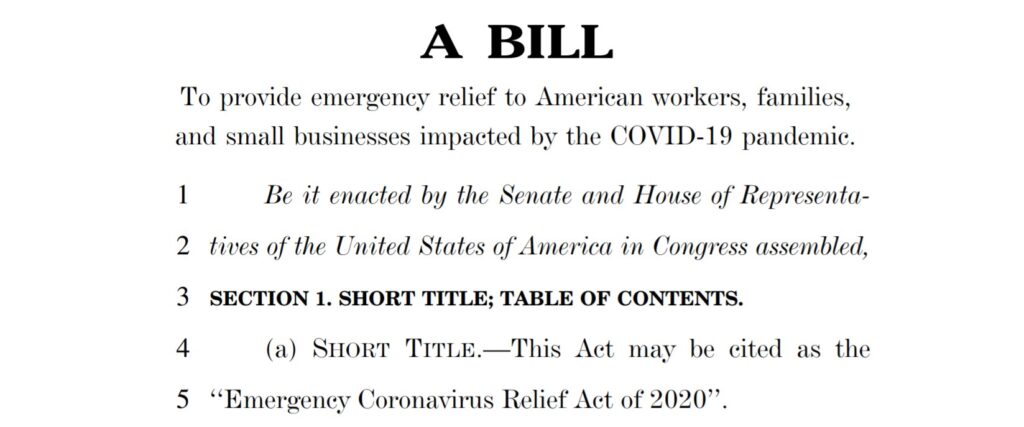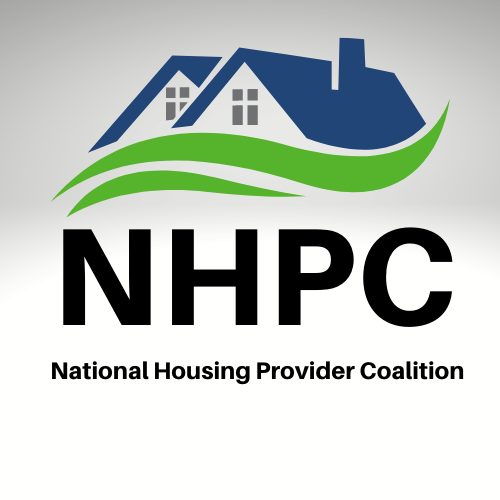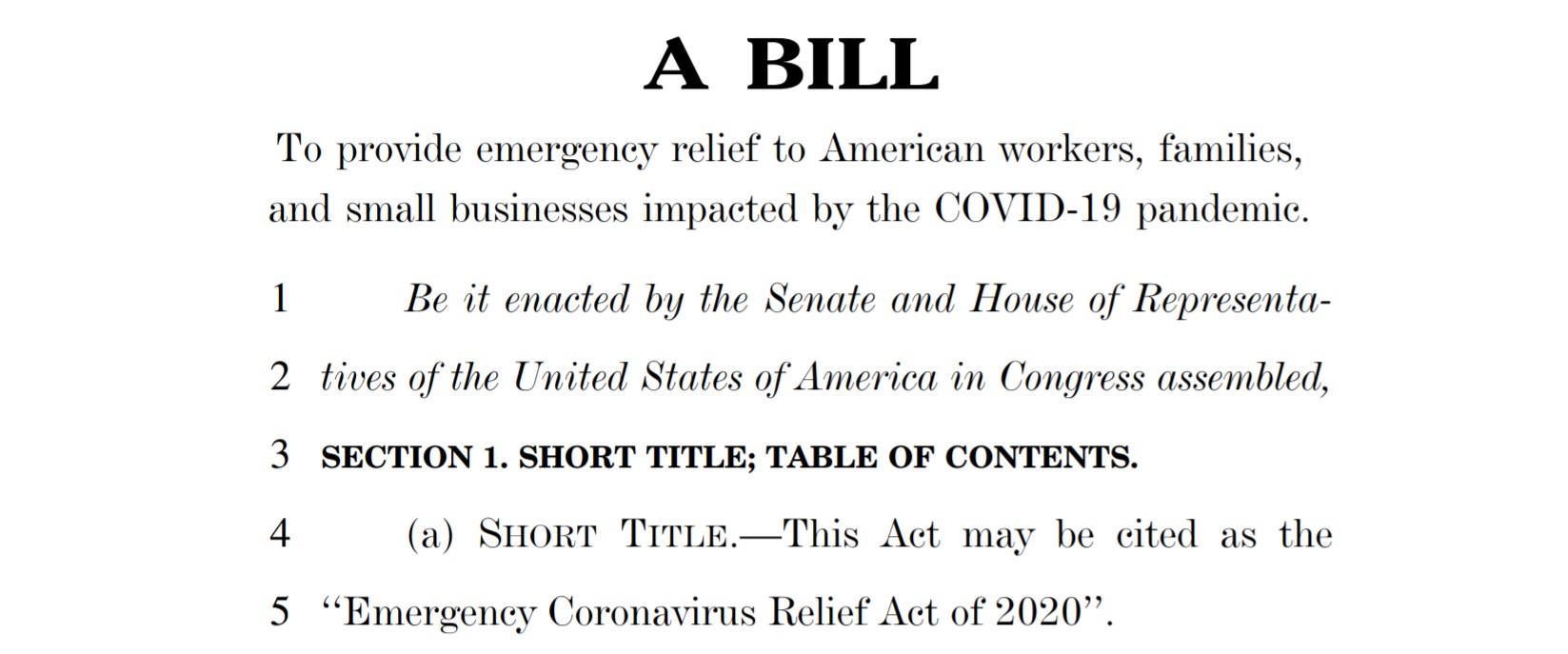
A bipartisan group of lawmakers on Monday released two bills they said would provide the nation with emergency economic relief amid the pandemic.
This bill is a $748 billion package that includes new unemployment benefits, small business aid and other programs that received broad bipartisan support.
Read the full text of the bill at the Washington Post
The bill includes new unemployment benefits, small business aid and other programs that received broad bipartisan support such as:
- 16 weeks of unemployment benefits at $300 per week for jobless Americans
- 16-week extensions in base unemployment benefits and the unemployment program for gig workers and independent contractors.
- Devotes $300 billion in small-business relief, including a second round of Paycheck Protection Program funding.
- Includes $82 billion for schools;
- Includes $13 billion in emergency food assistance;
- Includes$25 billion in rental assistance;
- Plus $35 billion for health-care providers;
- And $13 billion for farmers, ranchers, growers, and fisheries; among other measures.
Plus they propose to extend the Eviction Moratoriums until January 31st by which time they hope that unemployment, rental assistance and all the other programs will have kicked in allowing most renters and housing providers to be brought current.
Key Take Aways
- Landlords can apply directly. This will prevent tenants from simply filing CDC Declaration and then not completing App for govt. assistance.
- Cities and counties over 200k population (was 500k in CARES) now get their own fund allocation. Good for smaller places but less money for larger localities to disburse themselves.
- If landlord refuses to participate in new $25B program the tenant can get money directly for their rent. A “rent notice” of arrears is now sufficient to qualify the tenant. Had been confusion about whether “eviction notice” was necessary.
- CDC Order extended to 1/31/21 by statute. Bill says nothing about changing the CDC FAQ. Which is GOOD b/c right to challenge Declaration is important when tenants have income but refuse to pay ANYTHING.
Thanks to Tim Ballering & Heiner Giese for their input and the Washington Post for Reporting.

